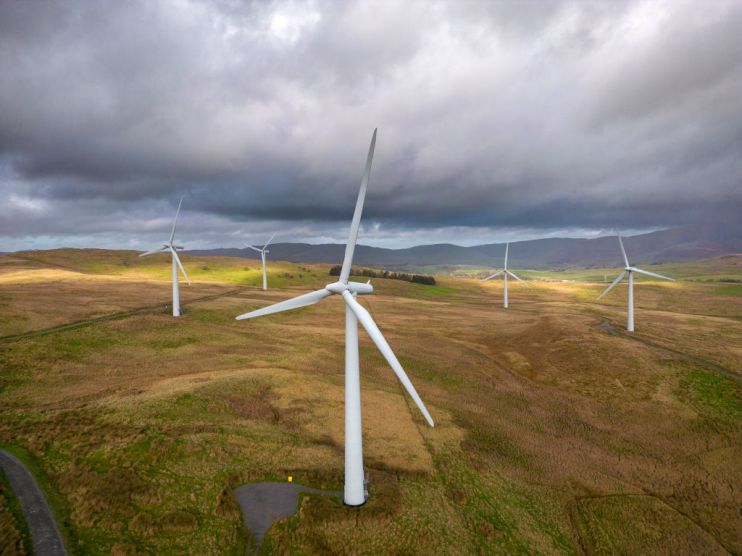UK looks to butter up NIMBYs with energy bill discounts for supporting new onshore wind

Households living near prospective onshore wind turbines could be offered lower energy bills in exchange for supporting new projects, under the latest proposals by the government to break the planning logjam around future developments.
The government is proposing adding community benefits, such as energy bill discounts, to the range of reward schemes that onshore developers currently offer host communities.
This would be agreed between developers and communities on a case-by-case basis.
With the costs of onshore wind having already fallen dramatically – currently around half what they were less than a decade ago – these proposals have the potential to play a crucial role in boosting the UK’s energy security, where there is local support.
The government argues that where communities host vital energy infrastructure, they should benefit directly from it.
Arrangements such as these have already been made between energy suppliers and customers, with the Octopus Fan Club designed to match households to new wind projects.
Today’s proposals also build on benefits already offered by developers to areas that agree to have onshore wind farms locally.
This includes holding a stake in a turbine, which gives households the potential to receive profits from the site’s operation, or funding for new community facilities, such as charging points for electric cars or new sports facilities.
Minister of state for energy security and net zero Graham Stuart said: “Onshore wind is a vital part of our plans to deliver cheaper, cleaner, and more secure homegrown energy. It is right that new developments have the support of host communities, and that local people benefit directly from it, such as through either a discount on their energy bills or other significant community benefits.
“Our proposals will ensure developers and local residents can work together more efficiently to maximise community benefits for supportive communities while delivering the clean and secure energy the country needs.”
With almost 15GW of it deployed in the UK, onshore wind has a significant role in the country’s energy mix.
However, the government still believes decisions on onshore wind are best made by local representatives who know their areas best and underpinned by democratic accountability.
Yet, just two onshore wind turbines were installed in England last year, according to research published earlier this year by trade body Renewable UK.
By contrast, more than ten times as much UK offshore wind capacity was installed in 2022.
Onshore wind has suffered a de-facto moratorium since 2015, as part of former Prime Minister David Cameron’s push against so-called “green crap” to appease the right of his party ahead of the 2015 election.
Since then, wind farms have required consent for developments to go ahead, with sites needing to be approved in conjunction with residents and local authorities across England.
Developers also have to show that the proposed project is located in an area designated for renewable energy in a local plan.
These requirements have empowered local authorities to make decisions over what gets built in their own communities, but at the cost of onshore wind generation, which has since stagnated.
Nevertheless, Renewable UK was pleased with the latest announcement.
James Robottom, head of onshore wind at Renewable UK, said: “We’re pleased that the government is consulting on the wide range of benefits which onshore wind can offer to local communities in England. We have a long track record of working closely with communities to ensure that they decide what form these benefits will take, depending on the needs and priorities of local people.
“Building strong relationships with local communities as early as possible is the best way to establish successful partnerships which last for decades. Alongside much needed planning reforms, this consultation provides an opportunity to increase the amount of cheap clean power we can generate for consumers as well as strengthening our nation’s energy security.”